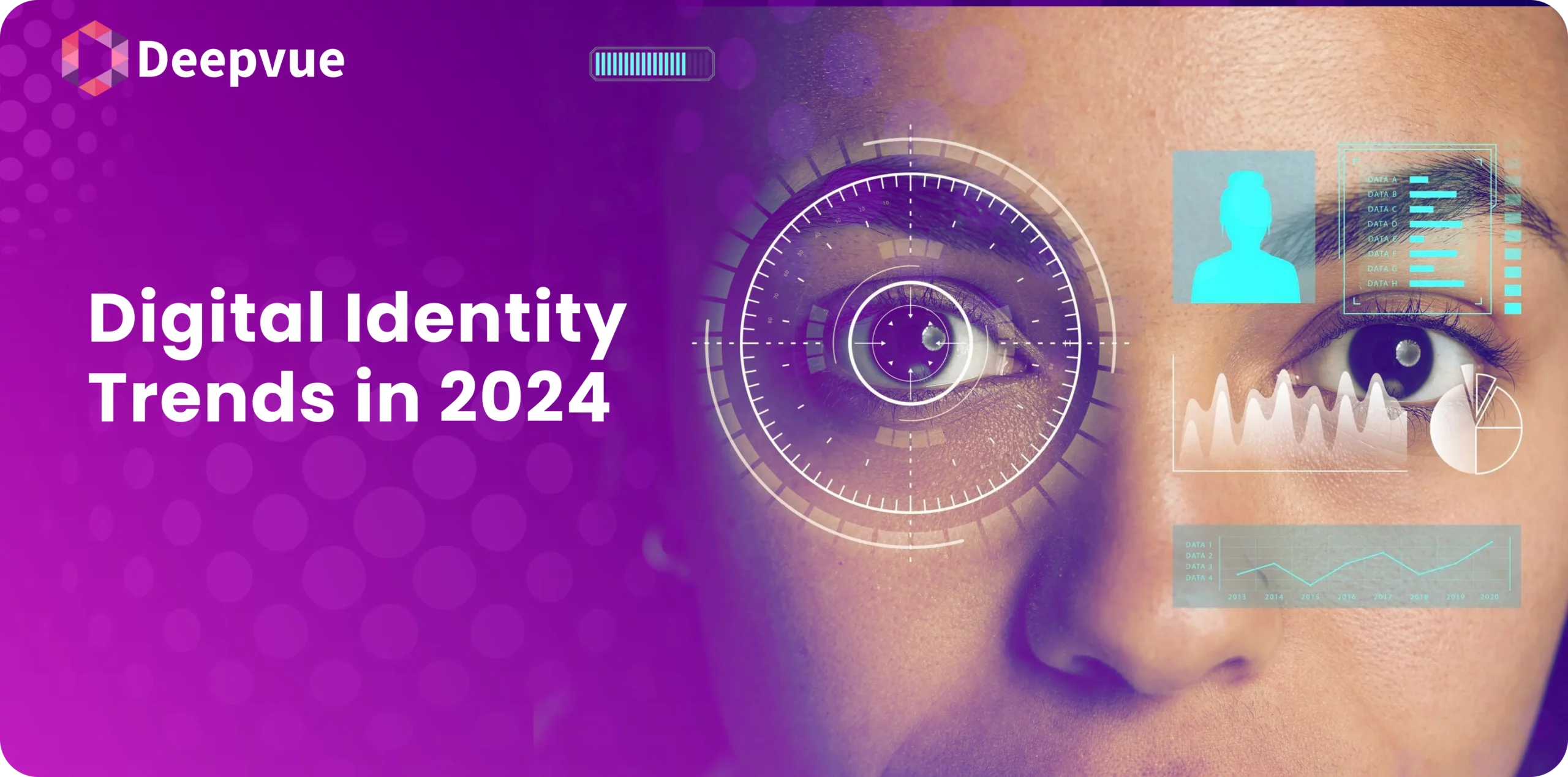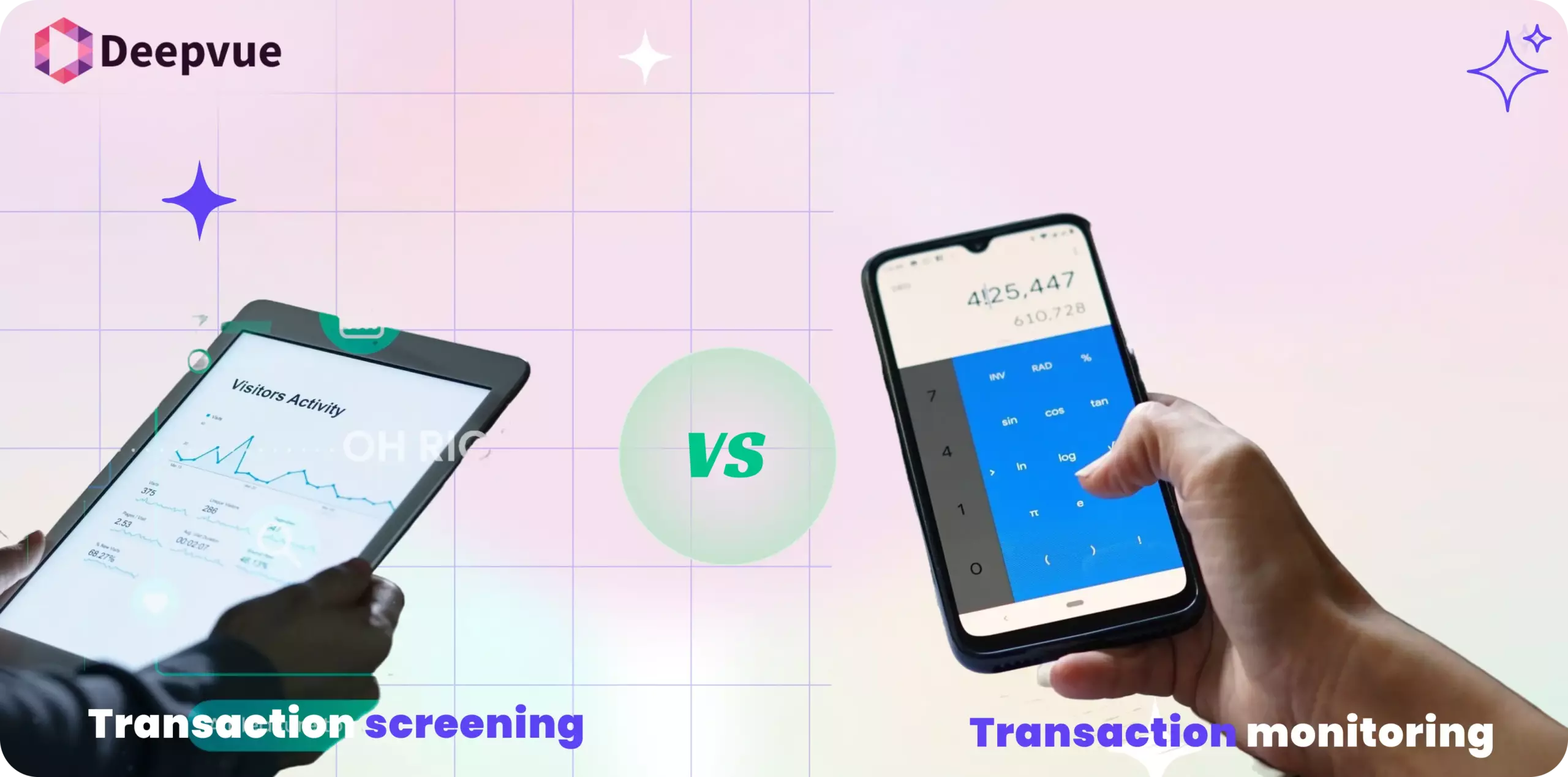Digital identity is now becoming critical in this fast-moving digital world. New technologies are changing how one verifies and protects their identity online in 2024. Ranging from Artificial Intelligence to biometric verification, such developments are making digital interactions safer and more efficient.
In this article, we will explain the main trends in digital identity for the year 2024 and how they impact businesses and consumers. Deepvue.tech has been at the top of API infrastructure for financial integrations, pushing through with these trends and securing a safe digital future.
The Rise of Artificial Intelligence in Digital Identity
Artificial Intelligence (AI) is the foundation of building digital identity systems. It offers an invaluable resource for enhancing and creating better identification verification processes because it can understand, learn and adapt to new techniques.
In 2024, AI’s role in digital identity is more definite than ever before, streamlining Know Your Customer (KYC) procedures, increasing fraud detection accuracy.
AI-Powered Identity Verification
AI-powered systems can analyze huge amounts of data quickly, identifying patterns that human eyes might miss. These systems have the capacity to fight identity theft & fraud. It also provides a safe and more efficient online experience for businesses and consumers in India.
This capability is important to fight against identity theft and fraud. For businesses and consumers in India, this means a safer and more efficient online experience. AI-driven solutions improve security and also simplify the verification process, making it more user-friendly.
Biometric Verification: Ensuring Authenticity
In these modern times, immense progress has been made in biometric verification in the shape of extensive usage provided by fingerprint scanning and facial recognition technologies. Liveness detection has also been added to these biometric techniques in order to ensure that the biometric data that is being collected is actually from a live human being and not tampered with.
The Importance of Liveness Detection
This makes liveness detection very vital in preventing fraudulent activities and acts as another layer of security in biometric systems, making it hard to pass through for fraudsters. In a country like India, where such technologies are necessary—especially with digital transactions rapidly growing—the user’s mind would be at ease because their biometric data is safe and secure, therefore protecting their identity.
Aadhaar: Model for Digital Identity
The Aadhaar system is a shining example of how digital identity could have been handled and harnessed. With a user base of over one billion, Aadhaar provides secure, accessible identification verification that opens access to a myriad of services ranging from banking to healthcare.
Expanding the Use of Digital IDs
Digital identity frameworks seem to be inspired by the UIDAI Aadhaar system and expand globally. These systems aim to provide security, verify identities, and enhance accessibility. At Deepvue.tech, we are integrating such robust digital identity solutions into our API infrastructure that can significantly improve service delivery and user trust.
Multi-Factor Authentication: Strengthening Security
The shift from the most basic password authentication to multi-factor authentication changed the dynamics of online security. In 2024, MFA solutions are evolving to incorporate the use of behavioral analytics and biometric verification.
Advanced MFA Techniques
MFA provides an increased degree of security by monitoring user behavior and adding biometrics while ensuring the ease of use for the end-user. This technique offers protection not only to personal information but also gives the best user experience. Indian businesses have to use advanced techniques of MFA to be able to help safeguard against the evolving cyber threats.
Combating Fraud and Identity Theft
Despite technological advancements, fraud and identity theft have remained a major challenge. In 2024, rather than being reactive, proactive initiatives were taken where AI and Machine learning could predict and deter fraudulent activities.
Proactive Fraud Prevention
AI and ML study trends and behavior patterns to detect fraud, providing faster action. This proactive approach is crucial for user trust and securing digital transactions. At Deepvue.tech, we’re integrating these technologies into solutions that will give clients protection with peace of mind.
Conclusion: A Safer Digital Future
Digital identity trends in 2024—more secure, accessible, and user-friendly solutions. From AI-driven verification to biometric security and advanced MFA, these developments pave the way toward a safer online environment. At Deepvue.tech, we ensure that our users will be at the forefront of such trends by integrating our API infrastructure and giving them the best quality in security and service delivery.
About Deepvue
Deepvue provides API infrastructure for financial integrations and insights that power innovation to enhance security and efficiency in digital transactions. We are committed to deliver best-in-class technologies that help businesses & consumers to catch up with this fast-evolving financial landscape.
FAQs
What is digital identity?
Digital identity is the collection of data about an individual or a business online. It includes personal information like name, address, date of birth. It also includes usernames, passwords, biometric data, social media profiles, etc. used to authenticate and verify identities.
How does AI improve digital identity verification?
AI enhances digital identity verification by analyzing large data sets for patterns and irregularities that signal fraud. It learns from new strategies in fraud and can thus significantly improve accuracy and efficiency in identity checks.
What is liveness detection in biometric verification?
Liveness detection is a technology used as part of biometric verification to provide assurance that the biometric data being given, whether a fingerprint or facial recognition, is from a live person and not just from a static image or recording; this seeks to prevent spoofing attacks.
Why is Multi-Factor Authentication (MFA) important for digital identity security?
MFA provides additional security by asking for more than one form of verification. This includes something you know, like a password, and something you are, like your biometric data. This has made it more difficult to gain unauthorized access for fraudsters.
How can businesses protect against identity theft and fraud?
Businesses can protect identity fraud by integrating robust digital identity verification systems, AI- and machine learning-based detection of suspicious activities, biometric verification, and adoption of Multi-Factor Authentication for complete security.








